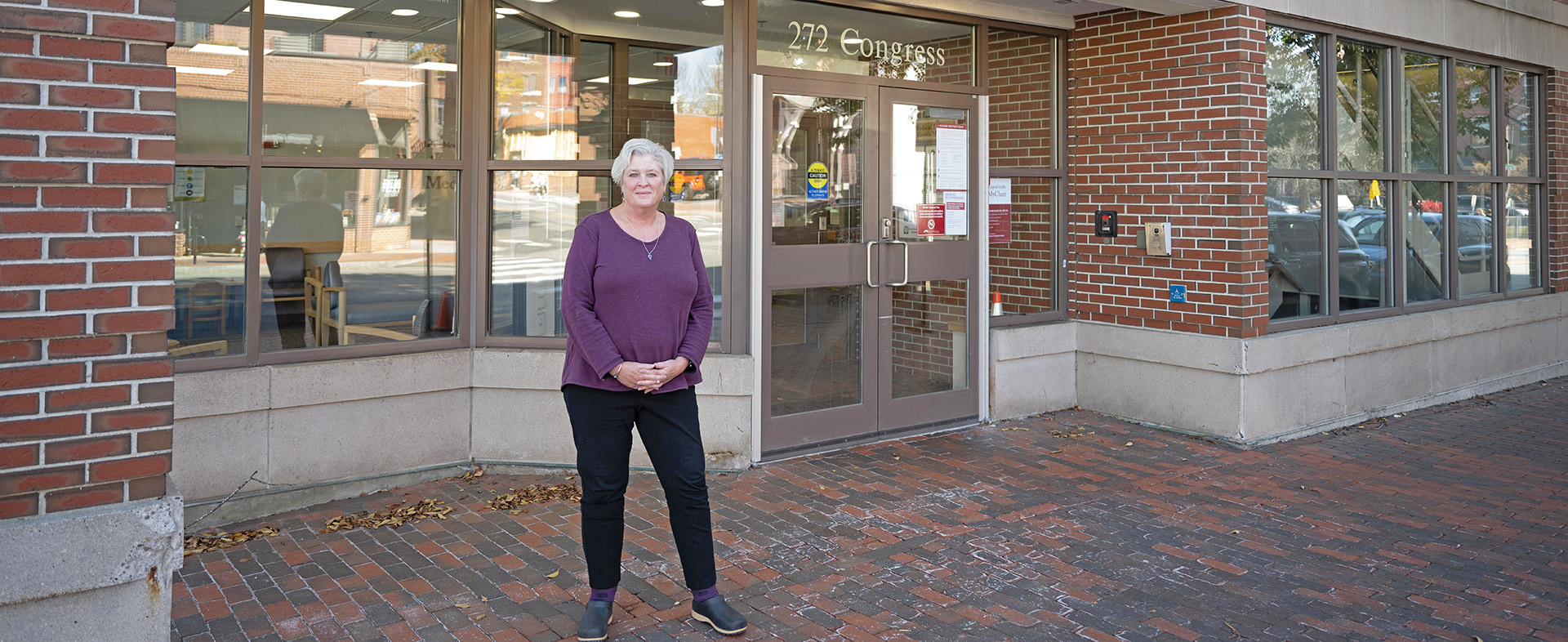

Group offers support for Long COVID
Earlier this year, the World Health Organization (WHO) reported that the COVID-19 pandemic caused a massive increase in anxiety and depression around the globe, estimating that the prevalence of these conditions rose 25 percent.
The pandemic and quarantines have led to massive social disruption and placed a tremendous burden on the people, families and the healthcare system to care for those who got sick with COVID. Many people continue to experience various complications, referred to as long COVID.
Behind the statistics are people like Diane Merrill, who nearly died in 2021 after contracting COVID-19. The 70 year-old struggled to regain the ability to do daily tasks. Even after regaining her strength, she still deals with moments of intense exhaustion and cognitive issues.
“People think COVID is over, but it’s not. People with long-haul COVID or who have had it in a serious way like I did still deal with it,” she said in a recent TV news story for WMTW in Portland.
It took Merrill a month to regain the strength to walk down the road from her home to the ocean before needing a break. Today, she can walk for about 30 minutes but still deals with moments of intense exhaustion and cognitive issues often called “brain fog.”
Amy Roberts, LCSW, CCS, who works for Maine Behavioral Health Care as a behavioral health clinician integrated into Maine Medical Partners Portland Family Medicine, spearheaded a support group for Merrill and other patients dealing with long COVID. Recognizing and treating the mental health implications of the disease is critical because COVID-19 upends lives.
“I would say the biggest impact of long Covid is that for many, they have a dramatic decline in their ability to function,” says Roberts. Complicating their recovery, Roberts says, is the fact that there is still much we don’t know about long COVID, including its prognosis over time. “There really is not a consensus on what it is, and there are not a lot of treatment protocols.”

Amy Roberts
Roberts works with her patients to help them accept that some of the lingering effects of COVID-19 may be long-lasting or even permanent while fostering hope that they will get better. Her work reminds us that, even as COVID-19 moves to a more endemic stage, its impact on individuals and our broader community is huge, including those for whom the pandemic was traumatic.
“Think of a single mother in a small apartment with three young kids for weeks at a time and with little access to safe, outside space,” said Roberts. These experiences can have a lingering impact on someone’s mental health.
The WHO report stressed the need for greater investment in behavioral health in the wake of COVID-19. It is expected that supporting these patients and others impacted by COVID-19 will continue to be a critical need for the foreseeable future. “This disease has shaken a lot of people’s core sense of security,” Roberts says.
Behavioral Health Treatment at Primary Care
Maine Behavioral Healthcare has over 60 behavioral health clinicians imbedded throughout the MaineHealth footprint. They serve as a critical connection for treating both the body and mind. Medical staff at these practices collaborate with the clinicians and rely on their expertise to best support the overall health needs of patients.
